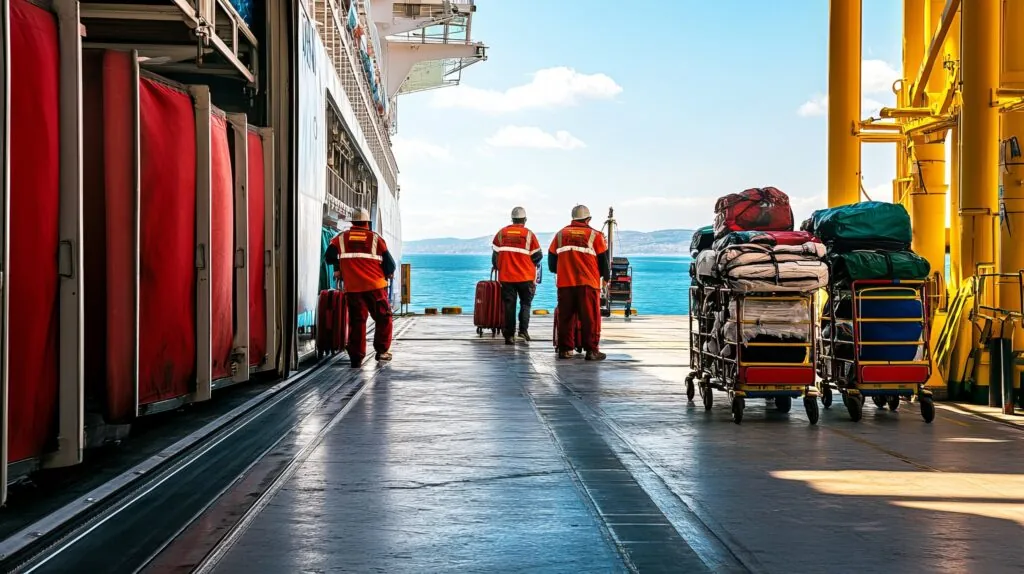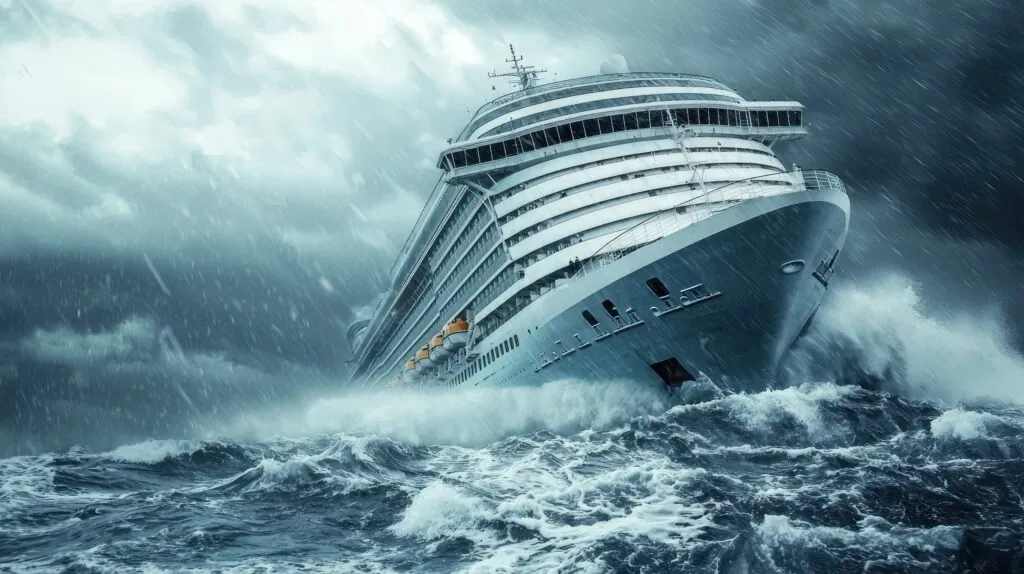The Impact of Crew Member Misconduct on Cruise Line Liability
Cruise vacations promise luxury, relaxation, and an escape from everyday life. But when misconduct by cruise ship employees disrupts that experience, it can lead to trauma, injury, and legal uncertainty. Whether a passenger is harassed, assaulted, or hurt due to a crew member’s negligence, many are left wondering: Can the cruise line be held legally responsible?
The answer, in many cases, is yes.

This article explains the legal principles behind cruise line liability, your rights as a passenger, and what steps to take if you’re the victim of crew member misconduct. If you’ve experienced something that shouldn’t have happened at sea, this guide is for you.
What Is Cruise Line Liability?
Defining Cruise Line Liability
Cruise lines can be held legally responsible for harm caused by their employees under a principle called vicarious liability. This legal doctrine makes employers liable for the actions of their workers when those actions occur during the course of employment.
Vicarious Liability Explained
On a cruise ship, this means that if a bartender serves alcohol irresponsibly, or a security guard uses excessive force while doing their job, the cruise company may be held responsible for the outcome. Even off-duty conduct by employees can expose the company to liability if it can be linked to negligent hiring or supervision.
What Is Considered Misconduct on a Cruise?
Types of Crew Misconduct That Lead to Claims
There are many behaviors by crew members that could create liability for the cruise line. These include:
- Sexual assault or harassment
- Physical violence or use of excessive force
- Verbal abuse or discriminatory behavior
- Overserving alcohol to passengers
- Failure to respond to emergencies appropriately
Real-World Examples of Misconduct
In one case, a crew member was found to have repeatedly harassed passengers, even after complaints were made. In another, a bartender continued to serve alcohol to a visibly intoxicated guest who later suffered a head injury. In both cases, the cruise lines faced serious legal consequences for failing to protect passengers.
Legal Rights of Cruise Ship Passengers
Do Passengers Have Rights at Sea?
Yes — cruise ship passengers have legal protections, even in international waters. Maritime law establishes a duty of care, meaning cruise companies must take reasonable steps to ensure the safety of everyone onboard.
Legal Claims You Can Make
If you were harmed due to misconduct or negligence, you may be entitled to file a personal injury lawsuit. These claims can seek compensation for:
- Medical expenses
- Emotional distress
- Lost income
- Pain and suffering
- Punitive damages in extreme cases
Key Legal Concepts That Strengthen Your Case
What Is Negligent Hiring?
Negligent hiring occurs when a company fails to properly vet an employee before hiring them. If a cruise line hires someone with a violent history or prior misconduct, and that employee harms a passenger, the company could be found negligent.
What Is Failure to Supervise?
Failure to supervise is another strong legal argument. It refers to the cruise line’s responsibility to monitor and manage employee behavior. Ignoring complaints or failing to respond to warning signs can increase the company’s liability.
What To Do If You’re Harmed Onboard
Step 1: Report the Incident Immediately
Tell ship security or guest services what happened. Make sure a report is filed and request a copy. This creates an official record that can be vital for your case later.
Step 2: Seek Medical Attention
Even if your injuries seem minor, visit the ship’s medical facility or a hospital at the next port. Medical documentation is important in personal injury claims.
Step 3: Gather Evidence and Witnesses
Take photos, preserve physical evidence, and write down everything you remember. Collect names and contact info of other passengers who witnessed the incident or can support your version of events.
Step 4: Speak to a Maritime Injury Lawyer
These cases are complex. Maritime lawyers specialize in cruise ship cases and know how to deal with contracts, international waters, and tight deadlines.
The Role of Cruise Contracts in Limiting Your Rights
Watch the Fine Print
Most cruise tickets include terms and conditions that limit how and where you can sue the cruise line. These often include:
- Short filing deadlines (as little as 6–12 months)
- Required filing location (often federal court in Florida)
- Arbitration clauses
Why Time Is Not On Your Side
Waiting too long to act could prevent you from ever filing a claim. That’s why early legal consultation is crucial — even if you’re unsure about your case.
How Cruise Lines Typically Defend Themselves
Common Defense Strategies
Cruise lines rarely admit fault. They may argue:
- The crew member acted outside their job duties
- The incident wasn’t foreseeable
- The passenger failed to report it properly
- There’s insufficient evidence
Why You Need Legal Representation
An experienced lawyer will anticipate these defenses, gather necessary evidence, and build a case that meets the strict requirements of maritime law.
Legal Precedents That Show Cruise Lines Can Be Held Accountable
Example: Sexual Assault by a Crew Member
In a case involving Princess Cruises, a passenger was assaulted by a crew member with a known criminal record. The court ruled that the cruise line failed in its hiring process and awarded damages to the victim.
Example: Overserving Alcohol
A Carnival Cruise bartender overserved a passenger who later suffered a serious fall. Carnival was held liable for not training staff to recognize intoxication, and for failing to intervene.
Challenges Victims Often Face After Crew Misconduct
Emotional and Legal Obstacles
Victims may feel scared to report misconduct while onboard. Cruise staff might discourage reporting, minimize the incident, or offer compensation in exchange for silence. Language barriers and fear of retaliation also prevent many from coming forward.
After the Cruise: Jurisdiction Confusion
Once home, victims may be confused about where and how to file a claim — especially if the ship sailed internationally. The complexity of maritime law and contractual limitations can overwhelm those without legal help.
Final Thoughts: Your Rights Don’t End at Sea
Cruise lines market themselves as floating luxury resorts, but they are also workplaces — and like any employer, they are responsible for their employees’ actions. When a crew member harms or harasses a passenger, the cruise company can be held accountable in court.
Knowing your rights is the first step to seeking justice. If you or someone you know experienced misconduct on a cruise, you don’t have to stay silent or confused. Legal resources are available, and you may be entitled to compensation for what you endured.
Frequently Asked Questions About Cruise Line Liability and Crew Misconduct
Can I sue a cruise line if I was harassed or assaulted by a crew member?
Yes, in many cases you can. Cruise lines have a legal duty to protect passengers from foreseeable harm, including misconduct by employees. If a crew member assaults or harasses you and that act is connected to their employment, the cruise line may be held vicariously liable. Even off-duty misconduct may trigger legal responsibility if the cruise line was negligent in hiring, training, or supervising that employee.
What if the crew member was fired after the incident? Does that affect my case?
No, it does not. The cruise line remains legally responsible for incidents that occurred during your trip, regardless of whether the employee was later terminated. The company’s liability stems from its own actions or inactions — not just the crew member’s. Firing someone does not absolve the cruise line of accountability for what happened while you were on board.
Do I need physical injuries to file a lawsuit?
No. While physical harm can increase the strength and potential value of a case, passengers may also file claims for emotional distress, psychological trauma, or verbal harassment. Courts recognize that non-physical injuries, particularly from sexual harassment, threats, or intimidation, can have long-lasting effects. A documented pattern of inappropriate behavior or failure to act on complaints can still result in legal liability.
Where do I file a lawsuit if the cruise was in international waters?
Most cruise lines include a “forum selection clause” in the fine print of their tickets. This means you are usually required to file the lawsuit in a specific jurisdiction, often a federal court in Florida. The location of the incident or your home state typically does not matter. These contractual terms are legally enforceable, which is why consulting a maritime lawyer early is essential to avoid filing in the wrong court or missing important deadlines.
How long do I have to file a claim?
Time limits in cruise ship cases are typically much shorter than in regular personal injury claims. Many cruise contracts limit the filing window to just one year from the date of the incident. Some also require a written notice of your claim within six months. Missing these deadlines can bar you from ever pursuing legal action, so prompt legal advice is critical.
Contact The Cruise Injury Law Firm Today
If you’ve been harmed by a crew member while on a cruise, it’s time to take action. Cruise contracts are designed to protect the company — not you — and the legal clock may already be ticking.
A maritime personal injury attorney can help you understand your rights, gather evidence, and build a strong case. Many offer free consultations. Don’t wait. Contact The Cruise Injury Law Firm today to get the support and justice you deserve.






